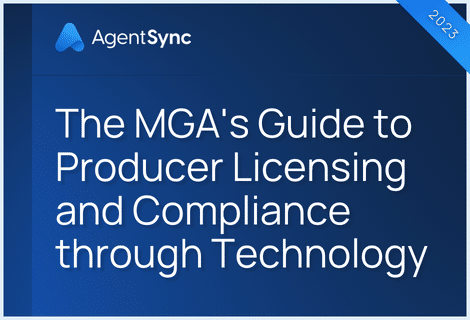

If you’ve had a run-in with the law, you know the difficulties associated with getting back to your life, or even just starting over.
Insurance, of course, is a promising field for someone looking to do either. Aside from the conventional vocation of producer, there are also jobs in marketing, administration, technology, underwriting, and more. And it’s no secret that insurance jobs were already going unfilled before the labor shortage posed by COVID-19 and its fallout.
So, Pennsylvania has recognized the advantages of connecting people looking for a fresh start with an industry that could use some fresh blood. But there are still some hurdles. For one thing, insurance has a steep learning curve. Getting up to speed and understanding the industry’s terminology, regulations, and products represents an investment of time and money even before a person becomes licensed. Also, some criminal pasts can’t be overlooked in the interest of consumer safety. That leaves the industry with a conundrum: Many who might otherwise qualify for a career in insurance may never pursue this path for fear that, after taking classes and paying fees, their past convictions will still limit them.
Pennsylvania’s Preliminary Licensing Determination program
To cut this cycle of doubt that stops prospective producers before they even start, Pennsylvania has begun a pilot program to provide prelicensing help and education aimed at those who may have a spotty record with the law.
In a June news release announcing the pilot program, Pennsylvania Insurance Commissioner Jessica Altman lauded the Preliminary Licensing Determination program’s effort to make the licensing process more transparent.

“While some criminal records will preclude individual applicants from licensure, there are also many individuals whose criminal records would not prevent them from meeting all of the requirements to become a licensed insurance agent,” Altman said. “The pre-licensing determination process will help applicants understand if their criminal convictions will preclude them from licensure without first having to go through the expense of pre-licensing programs and the formal application process.”
One element of pre-licensing is the option to submit a pre-application for a review of your criminal history. In this case, you prepare a dummy application for someone in the department to review, and they can give you a preliminary ruling on whether your application would be likely to succeed or fail based on the merits. As the state cautions, while this isn’t a binding ruling – there is still a chance your application could be denied even after being greenlit at the preliminary level – most likely, this will give you a realistic idea as to whether it is worth the time and effort to pursue a career as a producer.
Additionally, preliminary reviews can give you pointers on things you may be missing or unaware of in the application process.
Of course, even if you run your application through the preliminary process, you’ll still have to complete the prelicensing gauntlet before submitting an actual application.
NAIC: Pennsylvania’s insurance prelicensing is worth a look
The National Association of Insurance Commissioners’ (NAIC’s) Producer Licensing Task Force paid special attention to Pennsylvania’s pilot program in a meeting this summer.
The Task Force has agreed to review NAIC guidance on federal 1033 waivers, which concern those who work in insurance and have prior felony convictions concerning “breaches of trust.” To work in insurance with a past conviction, you have to obtain a 1033 waiver. The NAIC last updated its guidance on best practices for how states should regulate and coordinate these waivers in 2011. During the NAIC summer meeting of 2021, Task Force members discussed the Pennsylvania program as something to keep in mind as they crack open the association’s previous text.
One of the cool things the Pennsylvania website for prelicensing does is address rejected applications head-on. Without equivocating, the site includes a downloadable PDF to see why applicants were rejected in the previous year. From July 2019 to June 2020, 52,423 people applied for licensing in Pennsylvania. Only 15 were rejected for criminal histories, and each of them had multiple offenses that cumulatively led to rejection (including the fact that 11 of them provided misleading information on their applications).
By making this information easily accessible, Pennsylvania allows people who might otherwise be deterred to check out what paths are open to them. It also encourages them to be forthright about past history instead of feeling the need to hide their experiences. This transparency is radical, but as America reckons with matters of equity and justice, Pennsylvania’s prelicensing help seems like a step in the right direction.
For those who have successfully navigated their way into the insurance industry, there are still plenty of ways to jeopardize your license. If you are a carrier, MGA, or agency interested in limiting ways agents can expose your business, check out how AgentSync can help.

